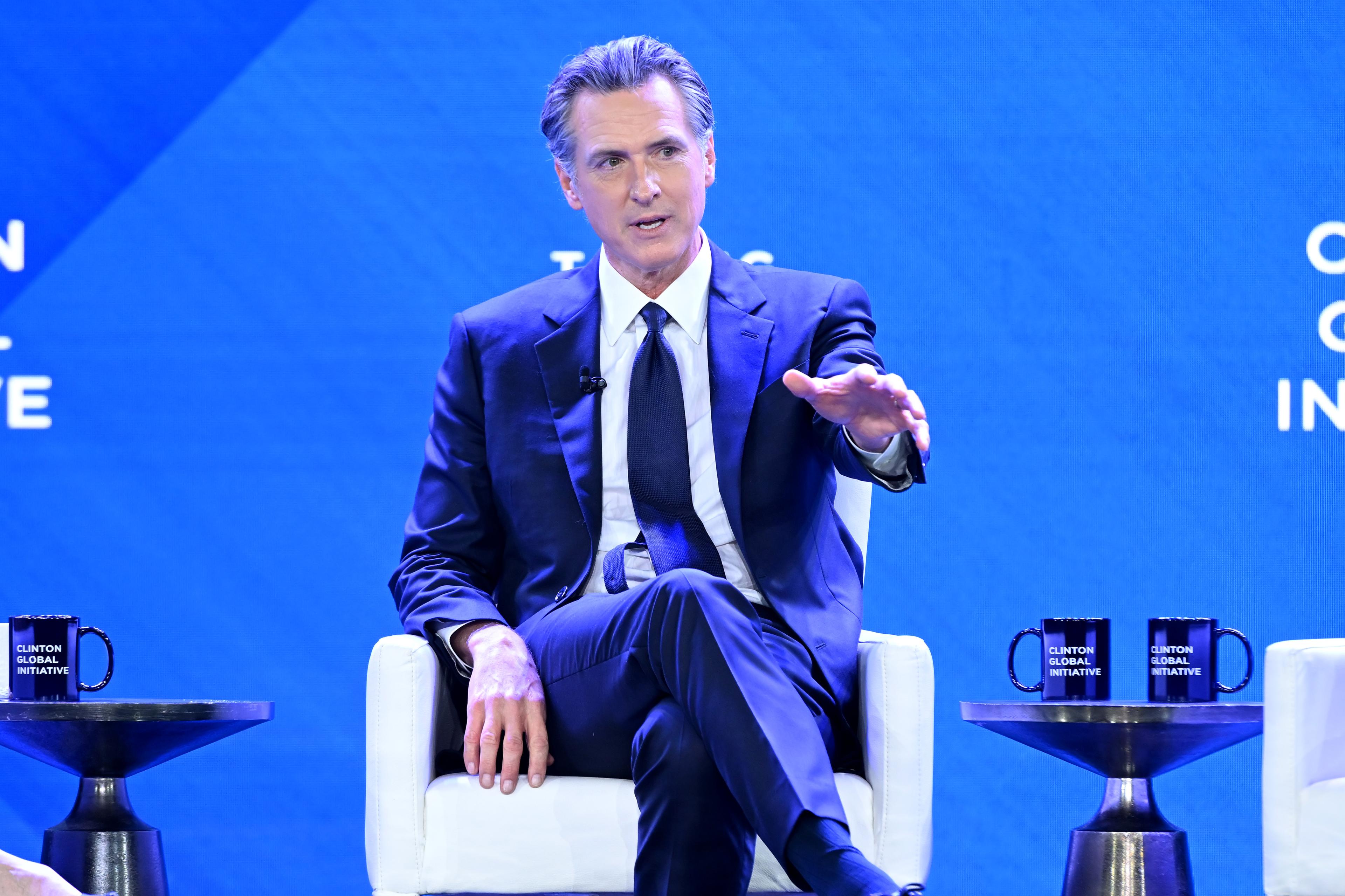The California Supreme Court recently agreed to hear a lawsuit filed by California Gov. Gavin Newsom and some lawmakers seeking to stop a ballot initiative—that would require voters to approve all tax increases—from appearing on the ballot in 2024.
In what some described as an unusual move requesting immediate relief from the state’s top justices, Mr. Newsom and others felt such was an urgency and therefore skipped the lower courts.
With a ruling expected from the court early next year, arguments are pouring in from stakeholders and officials on both sides of the issue—with one lawmaker saying the attempt to stifle the measure is anti-democratic.
“Democrats only care about democracy when it’s convenient. There’s no other explanation for this blatant attempt to disenfranchise voters who are fed up with California’s outrageous cost of living,” Assemblyman James Gallagher (R-Yuba City) told The Epoch Times on Dec. 6. “Out-of-touch politicians wasting money in an effort to silence their own constituents is exactly why more than a million Californians signed on to the Taxpayer Protection Act to rein in taxes and spending.”
The initiative, if approved by voters, would amend the California Constitution to expand the definition of tax to include every charge or fee proposed by lawmakers and would mandate that all tax increases be approved by a two-thirds majority in the Legislature and by a majority of voters.
The measure is currently slated for the Nov. 5, 2024, ballot, after more than 1 million signatures were collected by organizers affiliated with California-based taxpayer advocacy groups.
“Californians are fed up with taxation,” Jon Coupal, president of the Howard Jarvis Taxpayers Association, the largest taxpayer group in the state and one of the forces behind the initiative, told The Epoch Times on Dec. 6. “We are seeking to return some sanity to California’s politics especially as it relates to taxation.”
In addition to the lawsuit, which was filed on Sept. 26, the Legislature approved a measure this year that will be on the March 2024 ballot that would, in part, require a two-thirds voter approval on the tax ballot initiative, instead of a simple majority.
Additionally, the League of Cities—including the mayors of Los Angeles, San Diego, San Francisco, and Sacramento, among others—wrote letters to the court and argued publicly that the measure would threaten the ability of cities to fund critical operations.
Such a multifaceted attack, Mr. Coupal said, suggests leaders are fearful voters will be in favor of the proposal.
“The tax and spend progressives know that if it’s on the ballot, it will probably pass,” he said. “[They] have done everything they can to derail it.”
Noting the unique political positions proponents are in—essentially fighting to retain the right to increase taxes—he questioned the move to file the lawsuit given the optics.
“The governor and the Legislature are using the courts to try to take away the people’s right to even vote on this thing,” Mr. Coupal said. He said he is optimistic, however, that the court will allow voters to decide the issue.
“Their legal theories are extraordinarily weak,” he said.
With the petition filed in the name of the Legislature, Republican lawmakers noted the absence of discussion on the floor and lack of support from some legislators.
“First and foremost, we must correct the misinformation provided to this Court,” a group of Republicans representing both the Senate and Assembly wrote on Nov. 14 to the court opposing the litigation. “While certain legislators took it upon themselves to file this lawsuit, its purpose and content were never approved via legislative action, and we do not support this blatantly undemocratic attempt to disenfranchise voters by removing a voter-qualified initiative from the ballot.”

Voters cast their ballots in Los Angeles, Calif., on June 5, 2018. (Mario Tama/Getty Images)
Lawsuit Says Billions in Funding at Risk
Critics say having such increases decided by voters would be inefficient. They argue that legislative and executive authority by the governor currently granted by state law is best.If passed by voters, those involved in the lawsuit argue it would cause billions of dollars in revenue shortfalls and jeopardize the future of services and programs, including those for education, law enforcement, fire and emergency response, and road repair, among other things.
Additionally, the change would be retroactive to Jan. 1, 2022, which the lawsuit’s petitioners argue would create significant compliance issues and would further exacerbate funding shortcomings.
“Starting in 2025, billions of dollars in critical funding may be vulnerable as a result of the measure,” the lawsuit alleges. “The crises that will inevitably arise, from natural disasters to pandemics, will only put further strain on other essential government functions.”
Petitioners also argue that if the measure passes, local and state governments will be unable to perform as needed to support communities.
“This would have sweeping consequences for state and local governance,” the lawsuit alleges. “In doing so, the measure would in many cases impair the government’s ability to perform its essential functions.”
With an anticipated budget deficit of $68 billion in the upcoming budget process, according to the state’s Legislative Analyst’s Office, the potential for tax increases to fill the gap is an issue of concern for some lawmakers.
“Petitioners essentially argue that the only solution to budget shortfalls is higher taxes, refusing even to consider making adjustments to the state budget,” Republican lawmakers wrote the court. “Poor financial planning by Governor Newsom and the Democrats is not a reason to deny voters their constitutional rights.”
Some critics say the lawsuit is an effort to ignore the will of the voters by using the name of the Legislature and the authority of the court to disenfranchise citizens.
“The Democrat supermajority portrays themselves as the protectors of democracy, yet this lawsuit is a deliberate attempt to silence voters before they even have a chance to make their voices heard at the ballot box,” Senate Minority Leader Brian Jones (R-San Diego), said in a Nov. 15 press release. “Not only was there no official action to involve the Legislature in such an undemocratic, blatant disrespect of the voters, but we were not even informed beforehand.”
Arguing that the timing of the lawsuit, coming after the session ended, left lawmakers without the opportunity to debate its merits—he suggested such was done to protect political reputations in a coming election year.
“Democrat lawmakers could have easily voted on this lawsuit before the 2023 session adjourned on Sept. 14, but the supermajority never even brought forward a vote,” Mr. Jones stated. “The political reality is Democrat leaders know all too well that most of their own members don’t want to be on the record removing an anti-tax initiative from the ballot, which is exactly what their lawsuit proposes.”












